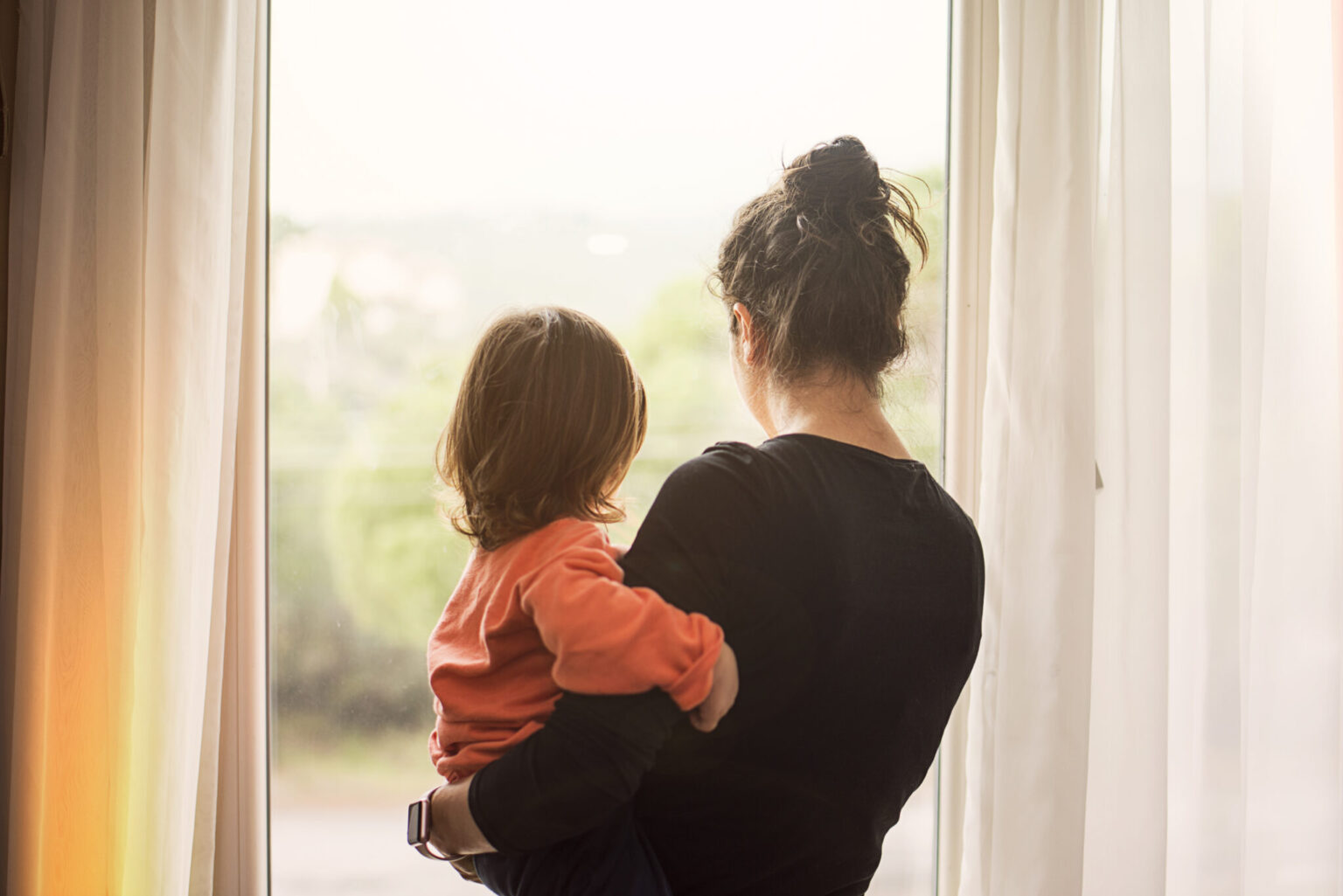Moms are tired. Bone-tired. That’s the word that comes up again and again whenever I talk to other mothers these days. No matter how strong you think you are, the last few years have taken a crushing toll.
Everyone bears the scars of the pandemic in different ways. But there have been so many other societal upheavals — from a spike in mass shootings to hazardous air from rashes of forest fires to the horror of watching the democratic system on the brink of collapse with the Jan. 6, 2021, insurrection.
It’s easy to feel like the world is falling apart. And when you are responsible for keeping little humans alive, thriving, healthy and happy, that’s a profoundly disquieting idea.
I can’t even count the number of times in the last three years that I’ve struggled to fall asleep, wondering if I’d made the most selfish choice in the world to bring children up this world.
You could write books about how various groups and communities have been impacted by the pandemic and beyond (and indeed, many will).
My heart aches for seniors who had their lives cut short by the disease or been painfully isolated in their last years. Communities of color were often the hardest hit early on and endured so many barriers for life-saving care. People with chronic illnesses and disabilities — who still face severe risks from COVID, even as the world has moved on — are tragically not even part of the conversation or policy choices anymore.
We don’t even know all the ways children will be impacted from COVID. It’s fashionable to talk about learning loss and test scores, peppered with some platitudes about mental health, but we rarely go deeper. We certainly don’t talk about the thousands of children in the world who have lost their lives or lost parents or primary caregivers to COVID. Some things are too awful to contemplate.
When it comes to parents and the pandemic, we’ve mainly focused on childcare. That’s a welcome discussion; it’s a full-blown crisis that started long before COVID hit. The utter anxiety of finding and entrusting your kids to other caregivers while trying to balance everything else in life is hard to describe.
But that’s just a small piece of the puzzle.
I want to focus on what moms have been going through, specifically, because, as study after study shows, we’re still our kids’ primary caregiver in most families, do the majority of the housework, and, most invisibly, most of the emotional work that keeps everything together. Many of us also are caregivers for our aging parents on top of all this.
Parenthood isn’t for everyone, of course. I don’t begrudge anyone for not making that choice. I’m a firm believer that you should not have kids — suffocating societal pressure be damned — unless you feel like taking on endless worry, thousands of diaper changes, angst-filled teen years and so much more is definitely for you.
But it’s also true that unless you are completely responsible for little humans, it’s hard to understand how all-consuming the struggles of being a parent are.
Motherhood, we’re told basically since birth, is about noble sacrifice. In order to bring the next generation into the world and make sure they succeed, moms must always put their kids first, above their wants, needs, work and free time. Most of us do this happily most of the time.
But during the pandemic — when we were terrified our kids would get sick (or we would get them sick) after having to go to work to pay the bills, when we constantly worried how all this would alter their development, when so many of us were forced into makeshift home offices in closets or kitchens, praying our kids wouldn’t shriek during Zoom calls — everyday life and its COVID-wrought monotony often felt completely overwhelming.
Those who were pregnant and became new moms during the pandemic had to navigate the most profound change in their lives during a terrifying health crisis. Any new mom will tell you how you catch your breath anytime your baby sniffles, your mind automatically zooming to worst-case scenarios.
But to have to grapple with that during COVID? That’s an unreal level of pressure, especially if you’re dealing with postpartum depression, as so many moms like I did. Too often, we suffer in silence because it’s supposed to be one of the happiest times of your life and you feel ungrateful, scared and like a horrible failure.
In 2002, I was a 25-year-old novice reporter rushing around to cover 9/11 anniversary events, praying that I wouldn’t go into early labor. When my daughter was born (thankfully, right on time), summer quickly gave way to an early, chilly fall and we spent days upon days holed up in the house together. It was hard to remember what day it was, squeeze in a shower and get more than an hour of sleep at any point in the day with a wonderful, beautiful colicky baby who nursed 12 times a day.
But at least I knew I could bundle her up and go to the grocery store if I needed to and see some other adult faces without risking contracting a disease that was killing thousands a week.
Moms of little kids endured the seclusion of the pandemic, while having to chase them around the house as they get into everything, all the time. If your kids were school-aged, suddenly you were a part-time teacher and sometimes cop, making sure they were paying attention to the lesson online instead of playing “Among Us” or constantly texting their friends.
Having teenagers, as I did, came with its own special challenges. There’s a myth about parenting that by the time high school rolls around, kids are mostly grown and you get a break, but I’ve never found that to be true, before or during the pandemic. Kids are going through crucial changes, discovering their passions, figuring out who they are and maybe falling in love for the first time. They really need you more than ever, and most of all just to listen.
Seeing kids go through such a fraught time during COVID was wrenching. Imagine trying to navigate your identity in a time of mass death. Older kids were fully aware of the daily death toll on top of not being able to go to prom or graduation, like my oldest — who fully understood and didn’t want to risk getting her grandparents sick, but still understandably felt the loss of those milestones.
The pandemic has brought my family closer together — something about facing such calamity outside the house has made fights between my husband and I almost nonexistent. And I’ve been lucky enough to develop friendships with my now-adult children who are doing amazingly well in college.
But I’m not naïve to think that the pandemic has left them unscathed, perhaps in ways they’ll discover in years or decades to come. Now that’s what makes it hard to fall asleep at night.
Even in the best-case scenarios, when no one in your family got severely sick or died, when your income didn’t dry up or your kids managed to learn in virtual school, the turbulence of the last years wears you down.
For so many moms, we’ve also had to balance our families with work — and the emotional work at both. You find yourself becoming the work mom, taking on everyone’s problems, trying to check in with co-workers during or after work who may be struggling as much as your kids at home.
One of the gratifying things about work, especially if you feel it’s your calling, is the feeling of accomplishment in finishing a task, knowing you did it well. As a journalist going on 25 years, I believe what we do is vital for society. We try to shine a light on what people in power are doing and tell the stories of people whose voices need to be heard. That keeps me going each and every day.
But when it comes to helping others during a global pandemic, your work is never done, you make mistakes and it’s never easy. And usually you end up putting your own needs last.
Most of all, you just feel like you’re failing all the time. And when you’re a perfectionist, that’s a bitter pill to swallow.
Being a mother is the most important job I have and always will be. It’s cost me some career opportunities, but that’s a trivial price to pay for the privilege of raising two of the best people I know.
But the cliché that motherhood is the hardest job you’ll ever have is true. Especially now, we all deserve a little more kindness. And we need to learn to be kinder to ourselves.
Our stories may be republished online or in print under Creative Commons license CC BY-NC-ND 4.0. We ask that you edit only for style or to shorten, provide proper attribution and link to our website. AP and Getty images may not be republished. Please see our republishing guidelines for use of any other photos and graphics.





Susan J. Demas